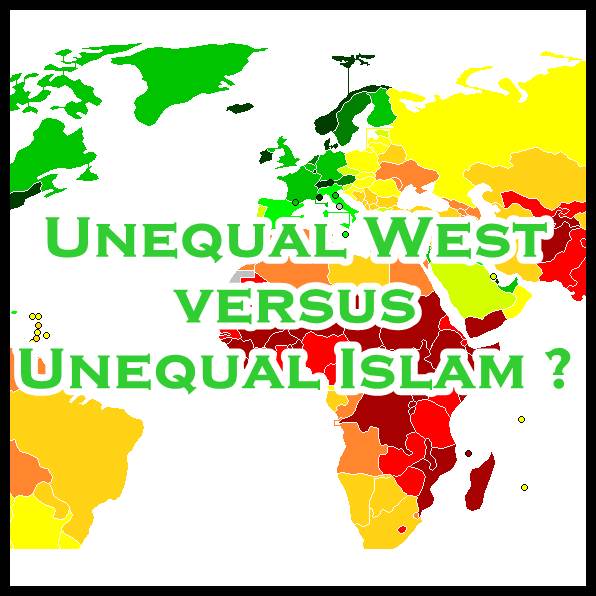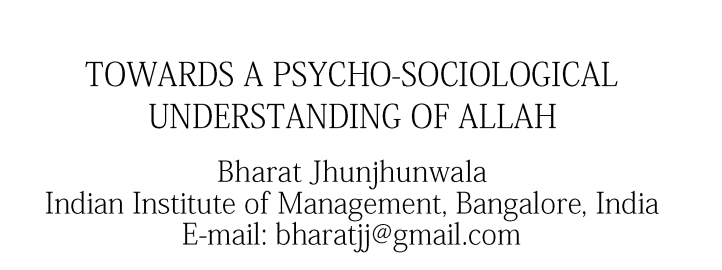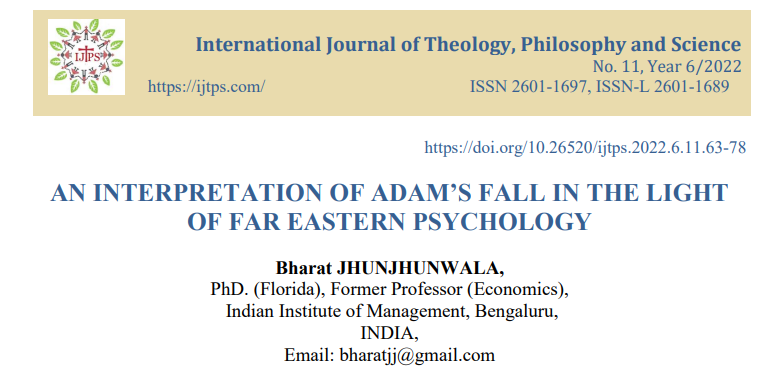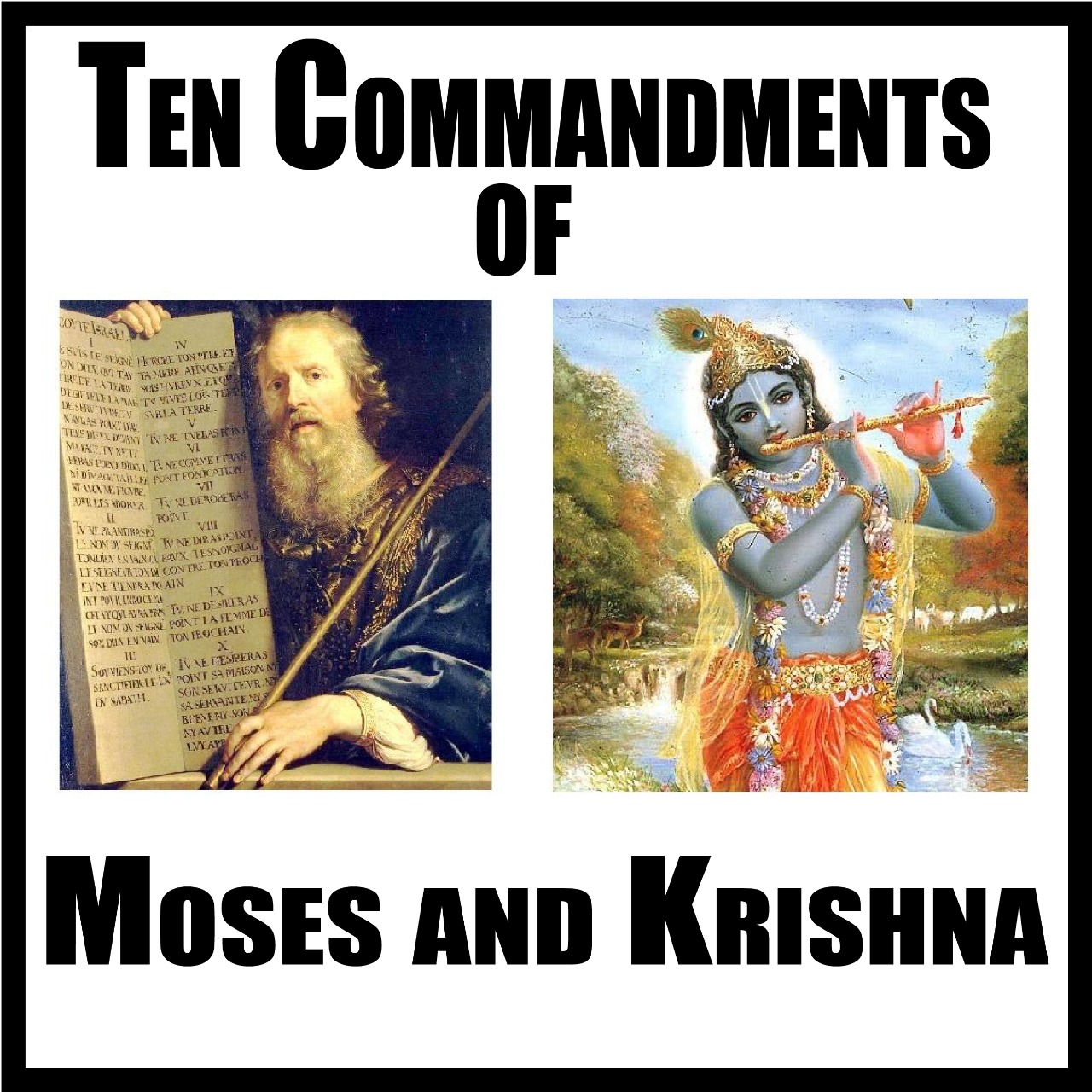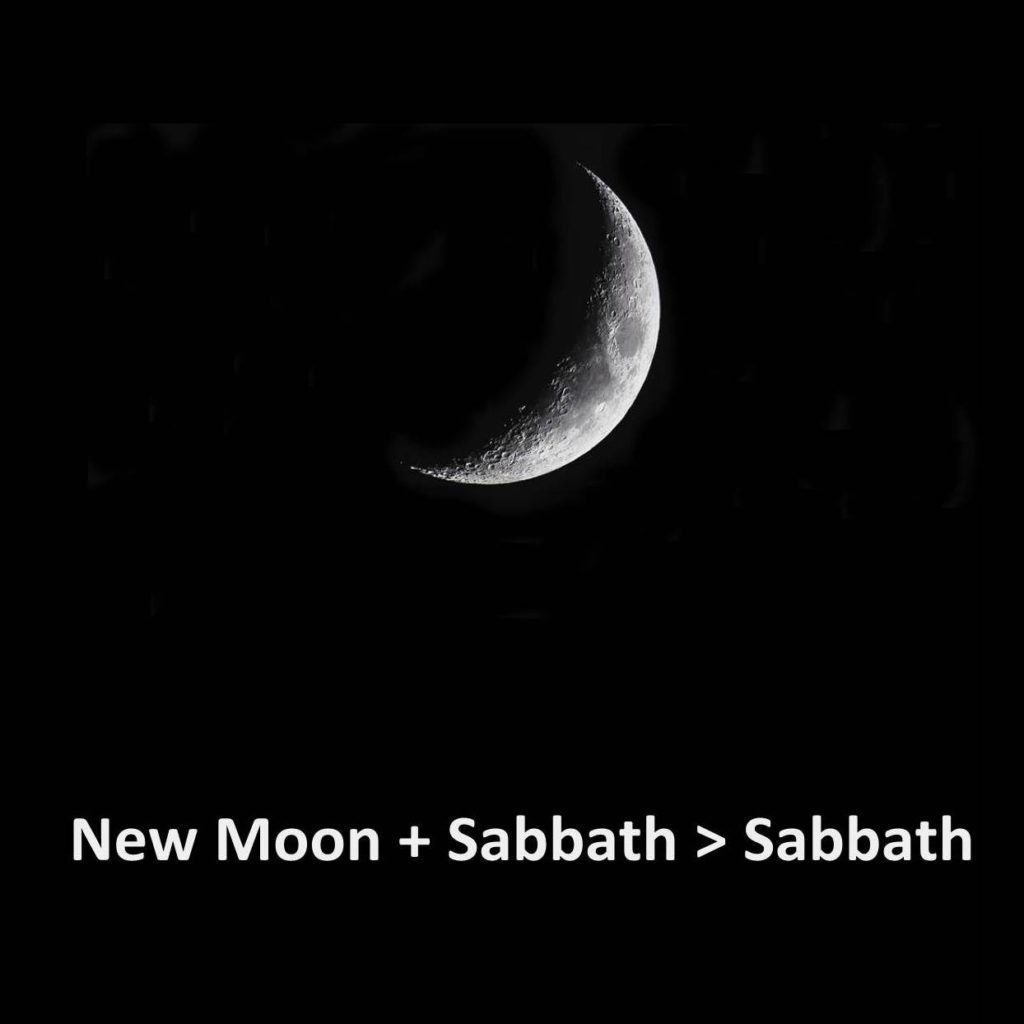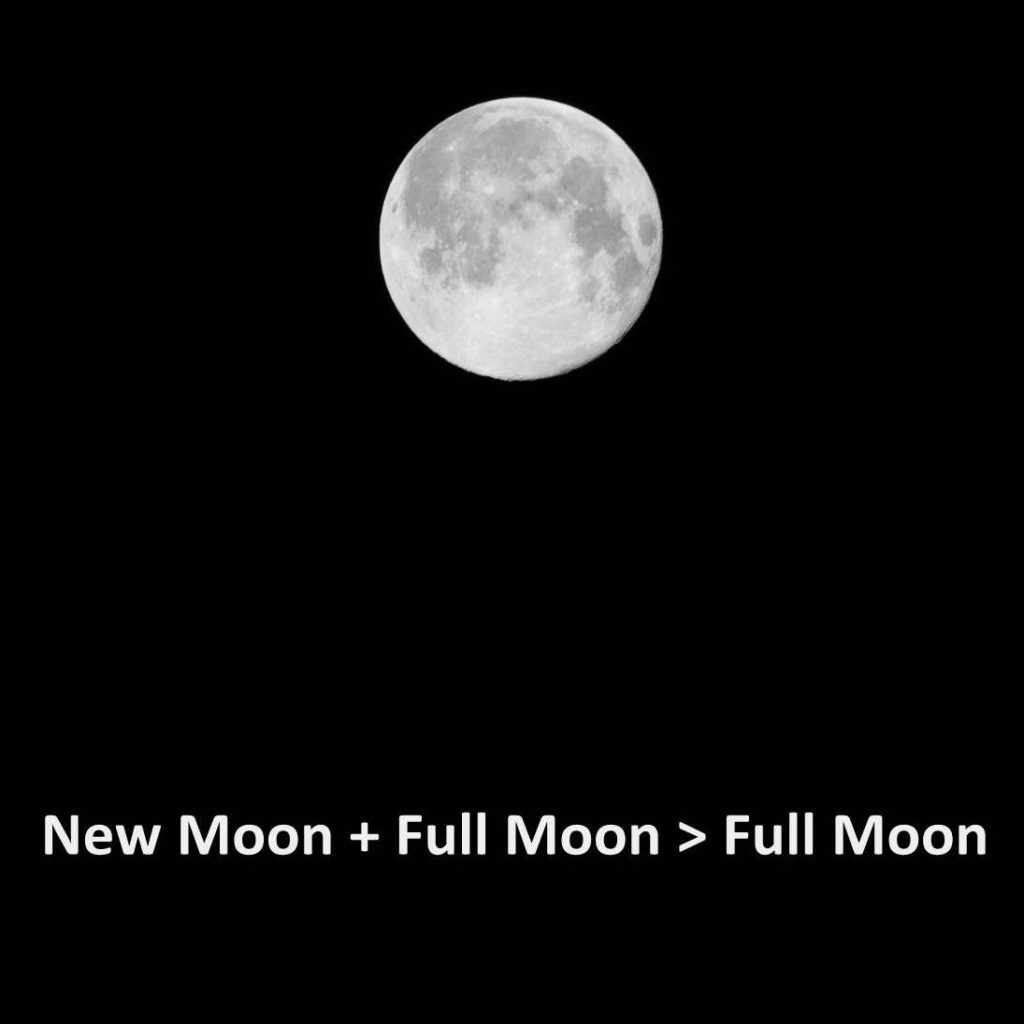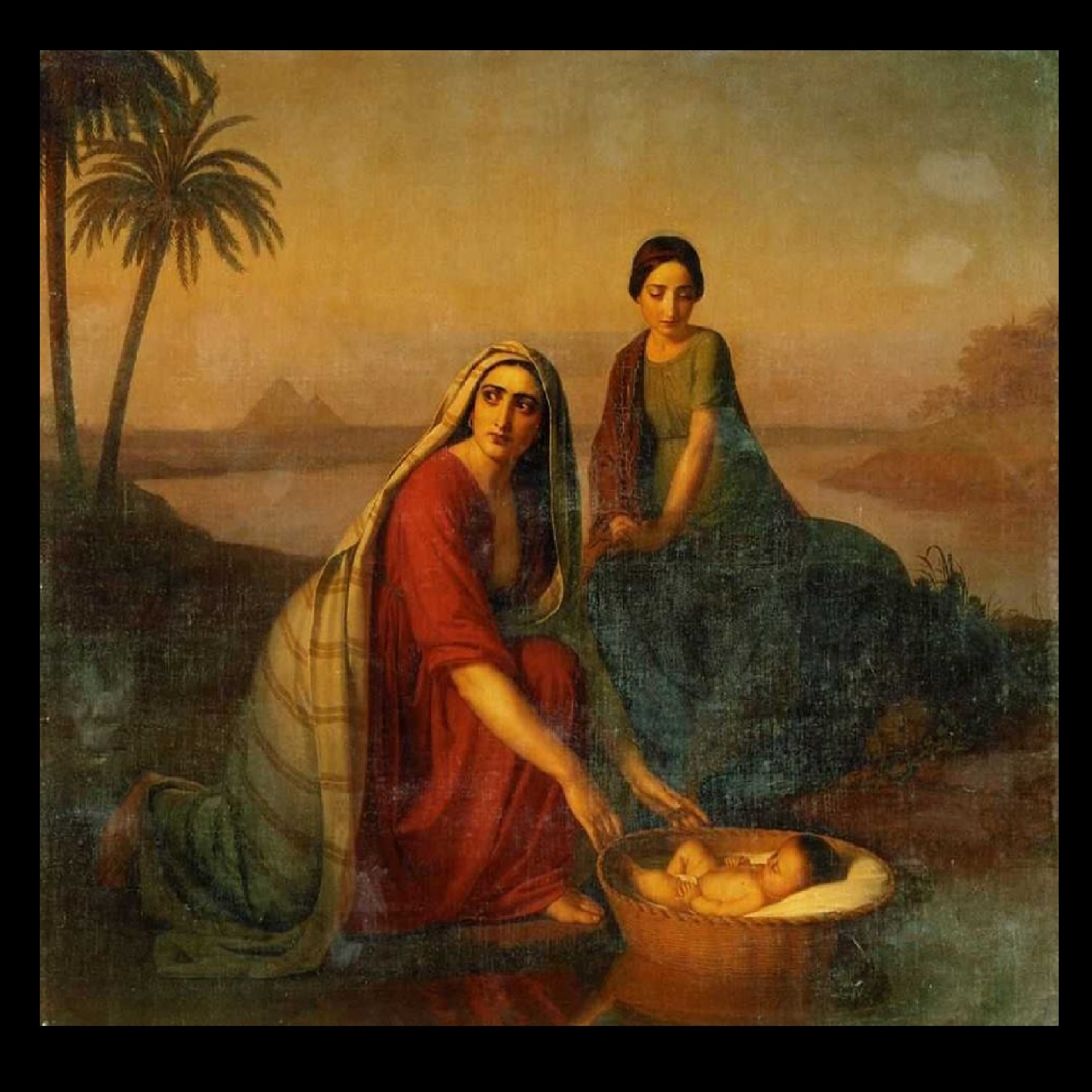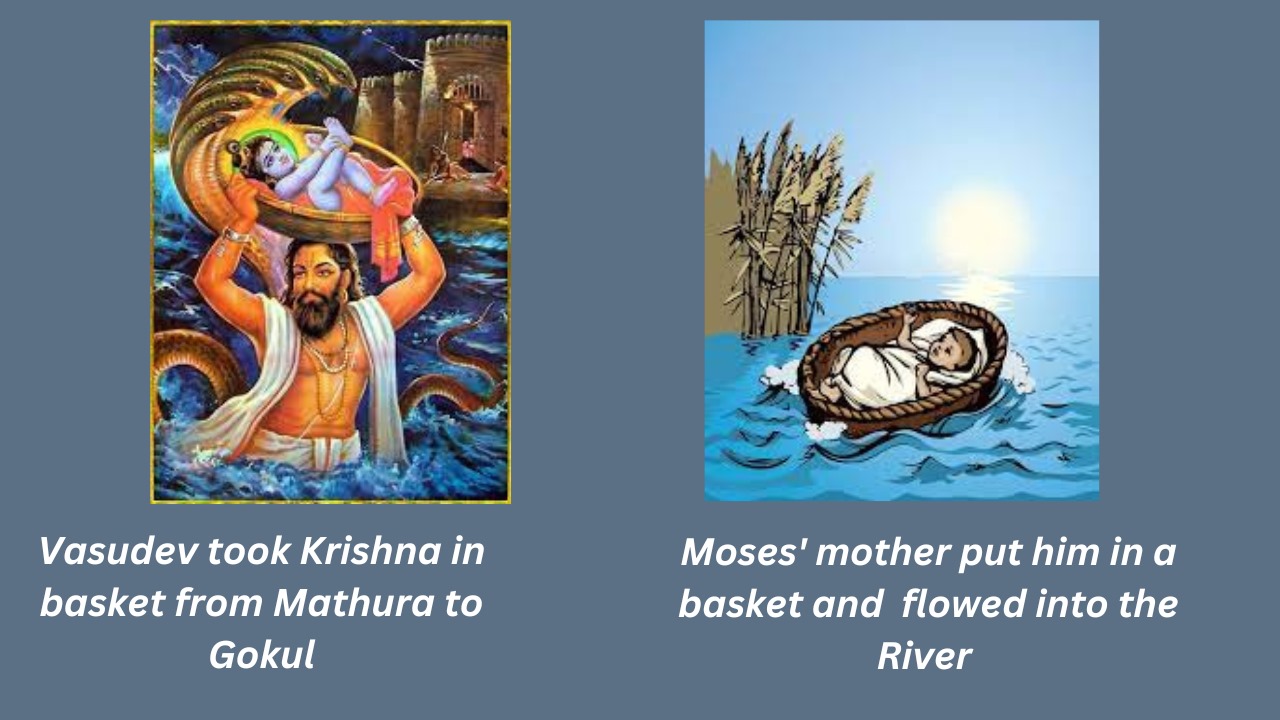Ten Commandments of Moses and Krishna
We have been suggesting that Prophet Moses was a same person as Lord Krishna. In this post we shall try to see whether their philosophy is also parallel to each other. The most well known theological statement by Prophet Moses is available to us in the Ten Commandments that were given to him by the Lord at Mount Sinai.
Does Hinduism have a 10 Commandments?
So we shall take the Ten Commandments and shall try to show that the teachings of Moses and of Krishna could be interpreted in a parallel manner.
The First Commandment is “I the Lord am Your God who Brought you out from the Land of Egypt from the house of slavery.”
Now this statement as translated above seems to say that God is someone external, He Brought the Hebrews out of Egypt as if a person who standing on the shore has pulled someone from the water. Similarly, this translation of this verse says we am Your God Who Brought you out from Egypt. Now let us look at an alternative interpretation of this verse. This verse has nine Hebrew words.
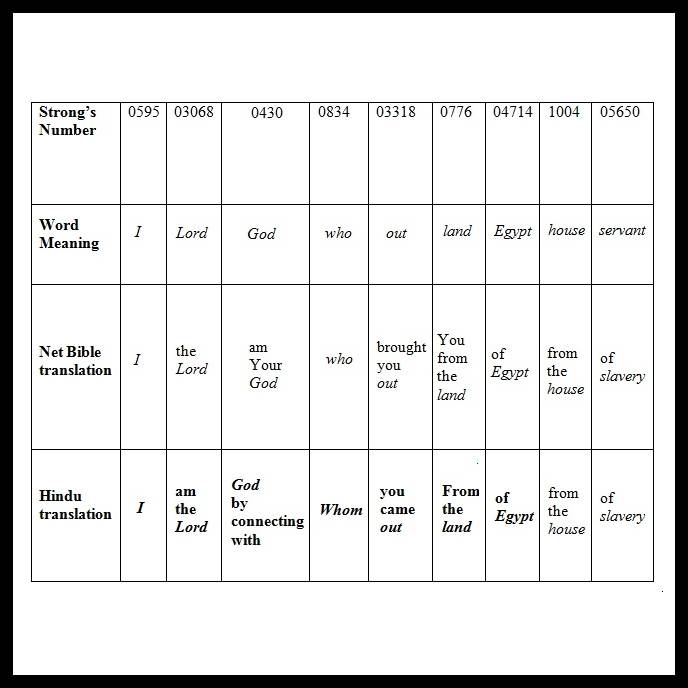
How did the Hebrews get out of Egypt?
Now in the phrase “I the Lord,” “the” is not in the Hebrew text; in the phrase “I am the God,” “I am” is not there in the Hebrew text; in the phrase “Brought you out,” “Brought you” is not there in the Hebrew text; in the phrase “You from the Land,” “You from,” is not there in the Hebrew text; in the phrase “From the House,” “From the” is not in the Hebrew text. In this manner we find that certain Hebrew words have been expanded and the meaning has been explained. This may have been necessary because the original Hebrew does not have vowels it only has consonants and depending upon which vowel is inserted, the meaning changes. Now in the line below we am interpolating different words to arrive at a totally different concept: “I am the Lord God by connecting with Whom you came out of Egypt.” This translation is also consistent with the Hebrew text. However, this translation matches with Krishna’s concept of the all-pervasive Monist Lord.
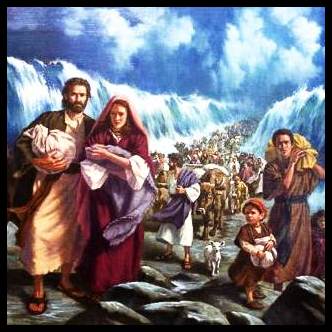
Who led the Hebrews out of Egypt?
The concept of the Lord is different in the two translations. It is an external Lord in Moses’ concept while it is an all-pervasive Lord in Krishna concept. IN Krishna’s concept one gets the power of the all-pervasive Lord and one becomes like the Lord. Therefore, the First Commandment has two interpolations.== One, I am the Lord God who brought you out from Egypt. Two, I am the Lord God by connecting with Whom you came out from Egypt. Both are correct. Therefore, there is no contradiction between the understanding of the nature of God between Moses and Krishna.
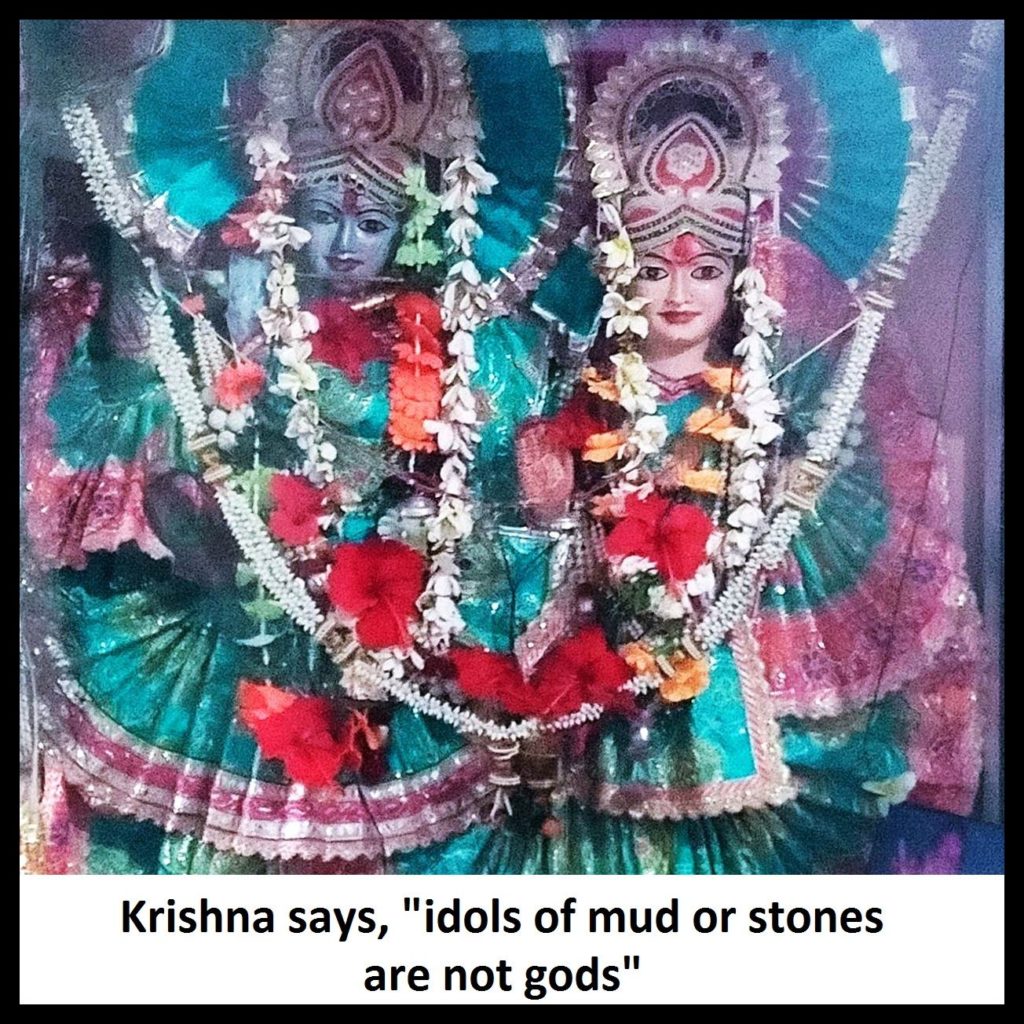
What does Krishna say about idol worship?
The Second Commandment is “make no idols.” The Hindu living traditions make large number of idols and this is not considered good by the Biblical tradition. However, Krishna himself did not honors idols. The Bhagwata Purana is the document containing doings of Krishna in the greatest details as per my knowledge. Here, Krishna says only idols of mud, stone and wood are not gods. So Moses’ injunction: “worship no idols” is same as Krishna’s saying. This teaching of Krishna may have got degenerated over a period of time and today Hinduism has become hugely idol worshiper.
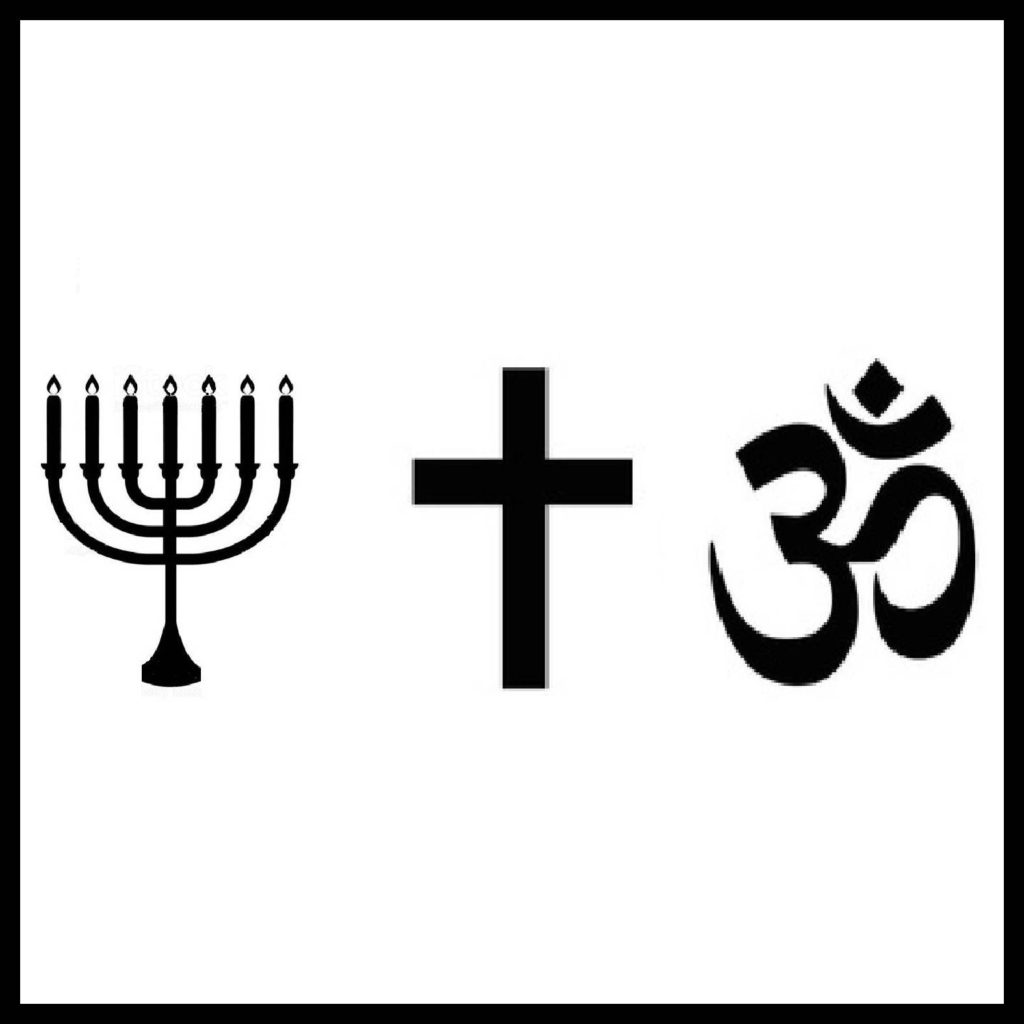
Who is the Hindu version of Moses?
It needs to be emphasized that teaching of Moses and Krishna could be the same yet the practice of Judaism or Hinduism can be very different because the same teachings may have diverged over time. We are showing the similarity of the teachings of Moses and Krishna; and not in the practice of either Judaism or Hinduism today.

The Hindu tradition has two set of scriptures–one is the Vedas and other are the Epics and Puranas. The Vedas are largely materialist whereas the Epics and Puranas are more philosophical. So, Krishna says in the Bhagwata Purana: “the Vedas do not tell of the final truth; rather they only help those who are attached to the world to cleanse the psyche.” So the Krishna is saying do not follow the materialist Vedas as the final objective because they will not take you very far. Moses saying “do not make wrongful name of the Lord” can also be rendered as “do not take name of the Lord as described in the materialist Vedas.”
What is the 4th commandment of the Sabbath?
The fourth Commandment is to observe the Sabbath. The Sabbath is the seventh day of the week where one is supposed to rest and undertake study, meditation and thinking. The Hindu tradition does not have a concept of such a weekly rest as per my knowledge. However, the Hindu texts tell of special days of the moon when one must undertake study, meditation and thinking.
The Sabbath is mentioned along with the new moon day in the Bible. The new moon day is considered holy whereas the Sabbath is considered to be of a civil nature where a landlord is supposed to give a day of rest to his workers and to his animals. It appears that the Bible originally had the new moon day in the centre (since it was a spiritual day) and the Sabbath as the civil attachment. Over a period of time, the new moon day has been put in the back and the Sabbath has become dominant.
The Hindu tradition had a great value for the new moon day (prathama or pratipada) along with the full moon day (poornima) in the Bhagwata Purana. It appears that the Hindu tradition originally had the new moon day in the centre and the full moon day as secondary. Over a period of time, the new moon day has been put in the back and the full moon day has become dominant.
So, at the time of Moses and Krishna, the new moon was important. But over a period of time the new moon has been put in the back in both traditions and the Sabbath has taken the front in the Biblical tradition; while the full moon has taken the front in the Hindu tradition. So the two traditions appear quite different today even though they appear to have been similar at that time.
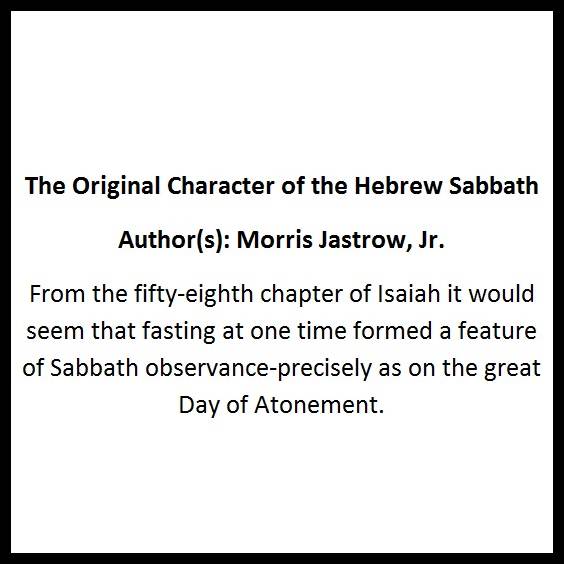
What is the moon fast for Hindus?
An apparent difference in the two traditions today is that the Sabbath is celebrated as a feast while the Hindu Full Moon is practiced as fasting. However, scholars say that originally the Sabbath included fasting as shown in the picture above. Therefore, fasting on the Sabbath or the New Moon is parallel at that time.
The fifth Commandment is “honor your parents.” This is a very general command and we do not find an explicit statement but the Hindu tradition also placed great importance on honoring the parents.
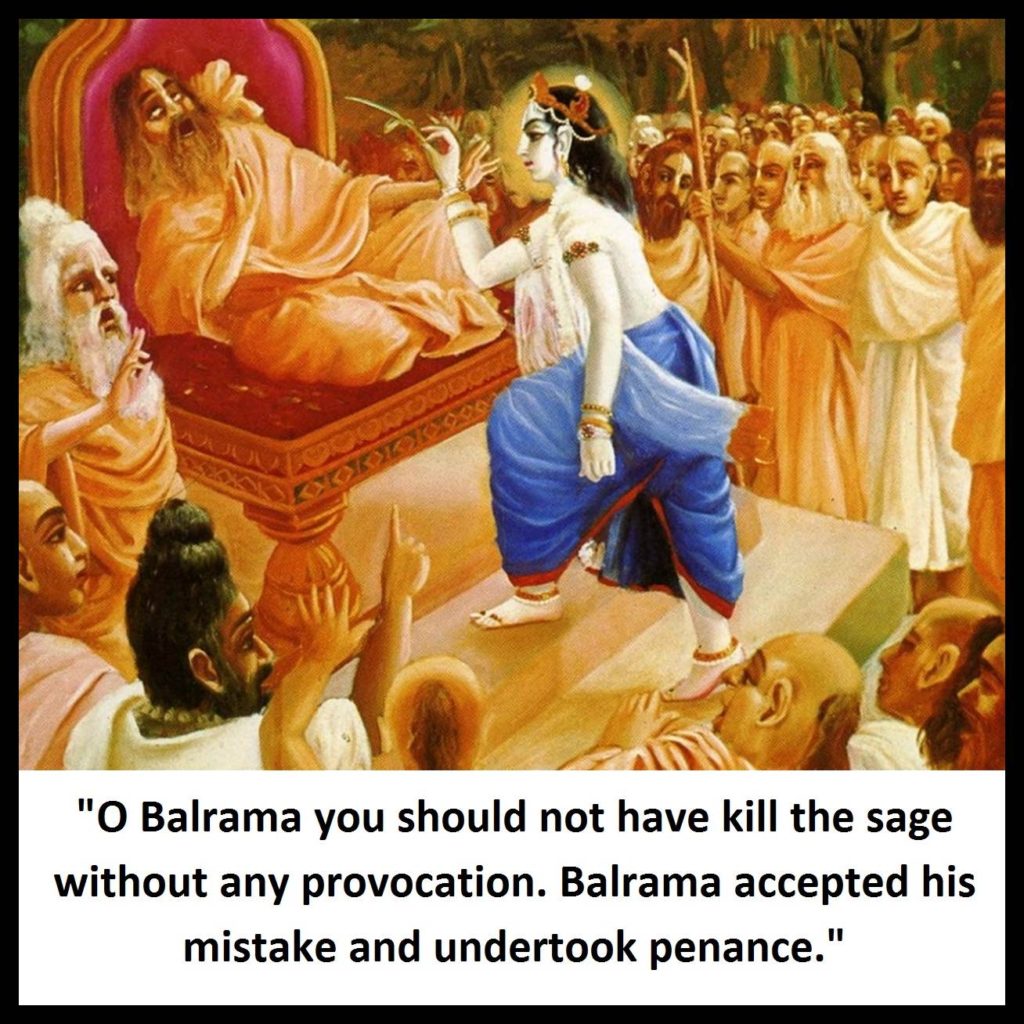
The Sixth Commandment is “you shall not murder.” We find a very interesting parallel in the Bhagwata Purana. At some time certain sages were undertaking sacrifices. Balarama, the elder brother of Krishna, was attending the same. Balarama was of the view that the particular sage occupying the seat of the Principle Sage was not authorized to occupy that position. Then, Balarama killed that sage. Thereupon the rest of the sages said “O Balarama, you should not have killed the sage without any provocation.” Balarama accepted his mistake and undertook penance. This story is saying that you should murder without any reason and is parallel to the Sixth Commandment.
The Seventh Commandment is “you shall not commit adultery.” Krishna, in parallel, says “to be astray in adultery is in all cases something contemptible. It harms the reputation, creates fear and gives troubles.” So both Moses and Krishna are saying the same thing
The Eight and Ninth Commandment of “not stealing” and “not bearing false witness” are again general although we do not find an explicit statement in the Bhagwata Purana on this.
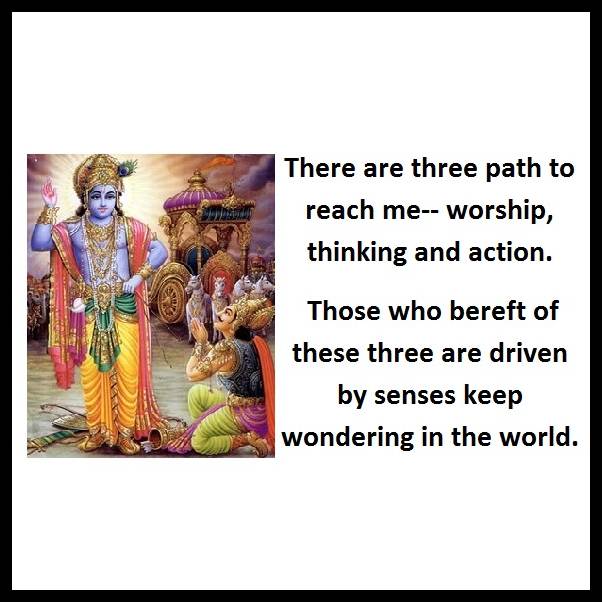
The Ten Commandment is “do not covet,” that is, do not be greedy, do not think of taking something that does not belong to you; or do not get attached to material things. Krishna says the same thing. He says: “there are three paths to Me.” Here “Me” is personified God in the person of Krishna. So Krishna says, “There are three paths to reach me–worship, thinking and action. Those who bereft of these three are driven by senses keep wondering in the world.” Here Krishna is saying do not allow yourself to be driven by the senses. The Tenth Commandment “Do not covet” is exactly parallel.
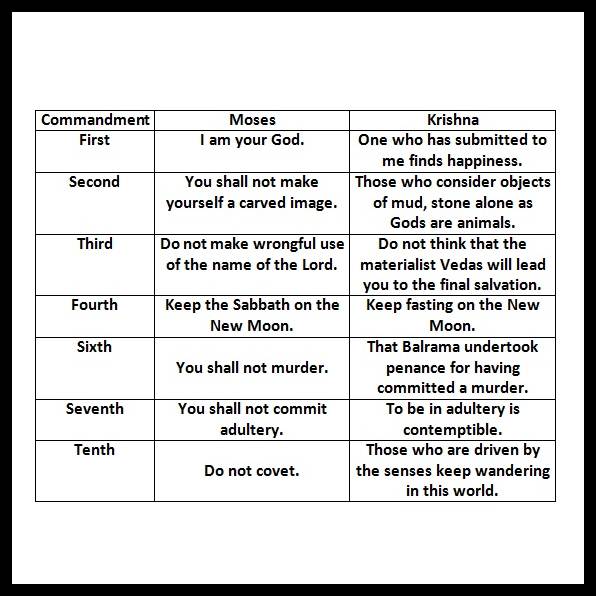
We find that the Ten Commandment which are given to Moses by God and the teachings given by the Krishna are parallel as we can see in this chart.
That said, the major difference perceived in the teaching of the Moses and Krishna appears to be regarding the concept of God. Moses’ God is an external authority who actively does things such as take people out of Egypt. Krishna’s God is all pervasive with whom if you can connect then you can take yourself out of Egypt.





